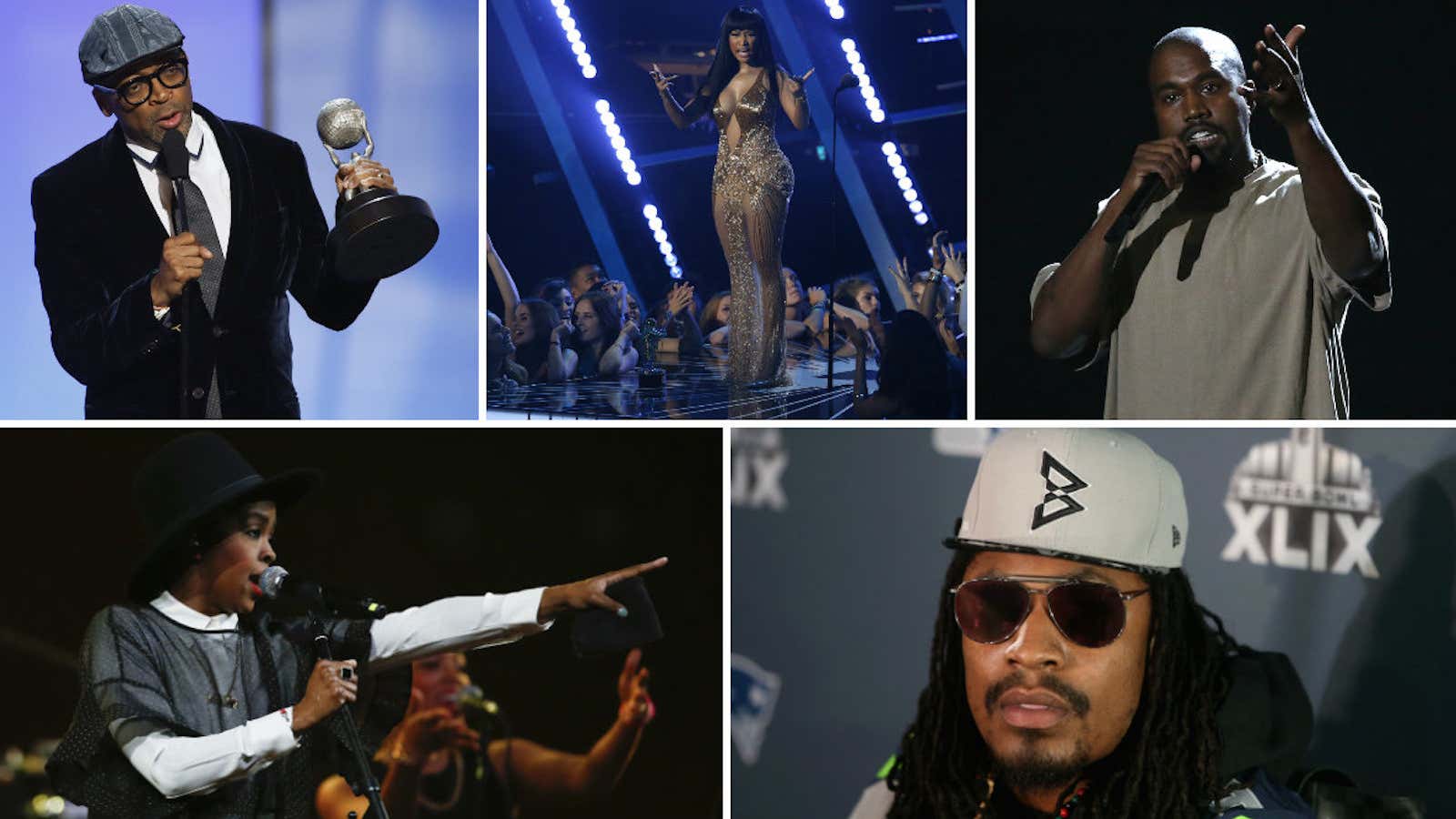When Nicki Minaj asked Miley Cyrus “What’s good?” at the MTV Video Music Awards on Aug. 30, many wondered if her words—and the altercation itself—were scripted. The culmination of weeks of back and forth—some warranted—between Minaj and fellow pop stars Taylor Swift and Miley Cyrus, the “Anaconda” star’s VMA outburst was quickly characterized by many in the media as a “rant.”
But while passionate, Minaj’s speech is actually only the latest example in a long history of black people, especially black people with a lot of cultural capital, having their opinions downplayed as angry or emotional. This is especially true when the “ranter” in question is critiquing racism in salient—if potentially uncomfortable—ways.
Sadly, for black celebrities, qualifications or expertise mean little when the status quo is being threatened. In this context, speaking out is far too often a trap that results in the same old labels, the same old denunciations and accusations of savagery.
When Kanye West went onstage after Nicki called Miley out, he gave a long-winded, scattered, allegedly drug-influenced speech—just like so many white creatives have before him. “Sometimes I feel like I died for the artist’s opinion. For artists to be able to have an opinion after they were successful,” he said, referencing his infamous interruption of Taylor Swift at the 2009 VMAs. Lost amid his typically rambling delivery, however, was West’s actually fairly astute observation about how race has influenced the way his commentary is received and consumed.
One could argue, of course, that there are more effective ways of making a statement than rushing a stage occupied by a fellow artist. But West has a history of direct, if controversial action—remember what he said on live television about George W. Bush after Hurricane Katrina? But ranting these days takes many forms, and not all of them involve disruption. Take Lauryn Hill, for example, who was accused of ranting in 2013 when she posted an analysis of structural racism and white supremacy to her personal blog. Or Spike Lee, whose entire body of work centers around Brooklyn neighborhoods, yet was accused of delivering an “expletive laden rant” earlier this year about gentrification.
And it’s not a problem specific to pop culture, either. Seattle Seahawks star Marshawn Lynch made headlines multiple times last year for refusing to talk to the press. But the 29-year-old running back’s boycott represented so much more than the actions of a petulant player—he was taking a stand against the way players are forced to uphold spurious contractual obligations in order to further the interests of team owners. As Jay Smooth commented over at Fusion, most people who watch sports prefer their players well-behaved and obedient. The fact that most owners are white and many players black adds another layer to the relative disenfranchisement of players like Lynch. Such nuance was lost on media organizations like Reuters, however, which predictably characterized his press conference speech as—you guessed it—a “rant.” (Lynch, it should be noted, plays on the same team as Richard Sherman, a Stanford University graduate who was nonetheless labeled a thug following his exuberant Super Bowl celebration in 2014.)
If you are in Nicki’s position, or Kanye’s, or Spike’s, what do you do? Do you give in and express your anger, even if you know that doing so may make it easier for critics to belittle or dismiss your argument as petty or self-aggrandizing? Or do you demur and keep your commentary to yourself, too exhausted to deal with a potential firestorm of racially tinged rhetoric?
The black celebrity or athlete rant is more often than not, something you weren’t supposed to hear but you could benefit from listening to. Don’t fall for the language trap—the next time someone is accused of ranting, look deeper. Like Nicki, at the end of the day we know what’s really good. And we will not be silenced.
